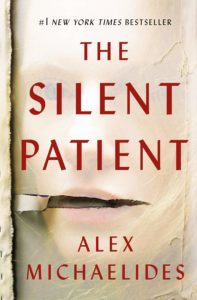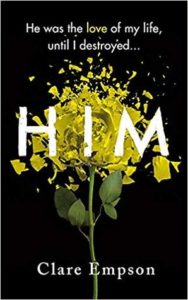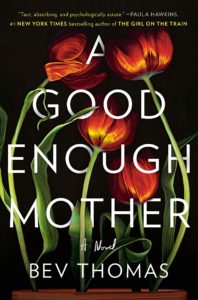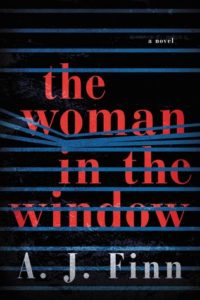It’s a stormy night. You’re driving home alone on a deserted country lane. It’s pitch black and rain is lashing on the windscreen faster than the wipers can clear it. You’re tired and desperate to keep your promise to be home in time to kiss your little girl goodnight before she falls asleep. There’s a sharp bend ahead and you take it more quickly than you should, your wheels skidding a little on the road. There’s a thud and one of the front wheels bumps over something. By the time you’ve realized what’s happened you’re fifty meters further down the road. You brake and look in your wing mirror. The road behind you is empty.
Do you pull over, step out into the fierce rain and search through the bushes for what you’ve hit? Or do you drive on? Do you convince yourself you imagined the bump? Do you tell yourself it was a wild animal? How many minutes, hours, days will that moment in time play on your mind? What did you hit? What if it wasn’t an animal you hit?
How we react to situations on any given day, how we make snap decisions, how we convince ourselves that those decisions are right, is truly fascinating to me. The above description is just one of millions of scenarios where we face a split second decision that has the power to knock our entire lives off course.
There is something so intriguing about the human mind and its components. And despite decades of study there are still many unknown territories within our minds and our behaviors. Just take the nature versus nurture debate first proposed by Francis Galton in the late 19th century. How much of who we are is shaped by our genetic makeup, and how much by our upbringing? The debate continues to this day.
Then there’s the dark side of psychology. The psychopaths and narcissists, schizophrenics and multiple personality disorders that dominate so many books and films. It’s no wonder then that over the years psychology has played such a huge role in thrillers. Think Fight Club by Chuck Palahniuk, and Misery by Stephen King.
The field of psychology is a vast landscape, and with so many mental disorders and behaviors that range from mild to extreme, it’s both exciting and challenging for authors to find new ways to push their characters to the brink.
So here are seven of my favorite books published in the last few years that really put the psychology in psychological suspense and psychological thrillers:

The Silent Patient by Alex Michaelides
Unless you’ve been living in a cave for most of 2019 you’ll already know something about The Silent Patient and you’ll probably have read it. It’s a fantastic thriller that delves into the intricate relationship between a psychotherapist and a patient. The novel centers around Alice—a patient at a secure psychiatric facility who hasn’t said a word since murdering her husband.
What grabs you from the start with this book is how desperate you are to know why a woman with the perfect life and the perfect marriage would shoot her husband five times in the face and then never speak again?
The author’s experience of psychotherapy and working at a secure psychiatric unit really comes through in the book, but what stands this book apart is how we only hear Alice’s point of view from past diary extracts.

The Rival by Charlotte Duckworth
This is a chilling and addictive read that digs into the conflicting worlds of high-powered career women and motherhood. It’s a duel narrative, duel time-line novel which opens with Helena who is an ambitious business woman without a job and a mother without a child, something she blames Ashley for. The reader is then taken back in time to before Helena’s pregnancy, to when she hires Ashley—a young fiercely ambitious woman who is keen to prove herself to Helena and the company. Helena hopes Ashley will be her protégé, but Ashley has other ideas and will stop at nothing to make it to the top.
What I loved about this book is how by the end I sympathized with, and liked, both women and the difficult decisions they had to make. What starts as a novel about female rivalry soon becomes a stark depiction of motherhood and mental health.

Lying In Wait by Liz Nugent
This author really knows how to hook a reader with an opening line.
“My husband did not mean to kill Annie Doyle, but the lying tramp deserved it.”
Straight away you are drawn into the world of Lydia—wife of respected judge—and her teenage son Lawrence, who live in a beautiful house in Dublin. Whilst the novel starts with a murder, it is not a whodunnit. It’s what happens afterwards and the ripple effects of the murder that will keep you turning the pages. It’s a dark and disturbing read that centers on Lydia’s flaws as a mother and as a human being, and her obsession with her son.

Him by Claire Empson
When the reader first meets the main character, Catherine, she is mute and being treated in a psychiatric facility after witnessing something disturbing. What then unfolds is a sixteen year mystery about friendships, love and heartbreak.
Him is really a novel about them—Catherine and Lucian, two people who fell deeply in love at University and the circumstances that lead them to not seeing each other for over a decade. It’s a beautiful and all consuming story about the events that lead Catherine to be so traumatized that she can’t speak.

A Good Enough Mother by Bev Thomas
A Good Enough Mother is another fantastic novel that looks into the patient-therapist relationship. Psychotherapist Ruth Hartland has years of experience in helping patients overcome trauma, but she’s also a mother to grown twins and is mourning the disappearance of her son, who went missing eighteen months ago. So when new patient, Dan, walks into the clinic looking and acting so much like her own son, Ruth finds the boundaries between therapist and patient are quickly blurred and events soon spiral out of control for both psychotherapist and patient.
This novel is a real ticking time bomb style read with psychology at its heart.

Beautiful Bad by Annie Ward
Beautiful Bad opens with a crime scene in a family home. Something terrible has happened, someone is dead, and the reader is immediately desperate to know what tragedy has occurred. From the Balkans to England, Iraq to Manhattan, and to an ordinary family home in Kansas, the novel spans the sixteen years of Maddie and Ian’s relationship from a chance encounter overseas to the final weeks leading up to the tragedy.
The author has threaded the psychology into this book with deft ease. Post-traumatic stress disorder and coercive control play a huge part in the unravelling of Maddie and Ian’s relationship, but it’s the shocking twist at the end which really hammers home the psychology for me.

The Woman in the Window by AJ Finn
This book needs no introduction. The Woman in the Window was 2018’s must read thriller, which centered on main character Anna Hope, an agoraphobic who is crippled by the fear of leaving her home.
What I enjoyed about this book was how the author portrayed Anna’s fear of leaving her home and the trickling of clues that leads to understanding why. A slow burn novel with fantastic pace and twists throughout.




















